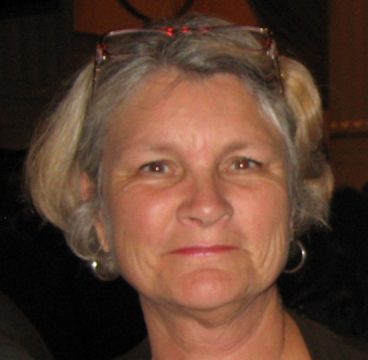Jennifer Loros, PhD, a professor of Biochemistry and Cell Biology and of Molecular and Systems Biology at Dartmouth’s Geisel School of Medicine, has received the 2023 B.O. Dodge Award from the Neurospora research community, which studies Neurospora crassa—a filamentous fungus that is widely used in genetic, molecular, biochemical, and cell biological research.

The award is named after Bernard Ogilvie Dodge, a pioneering scientist whose seminal work on Neurospora (or common bread mold) dramatically advanced the science of genetics and biochemical genetics in the twentieth century. The award recognizes that a significant part of the success of Neurospora as a model research organism is due to the collaborative nature of its research community and is given to an individual who has made sustained and exceptional contributions to their field.
“Receiving this award was a completely unexpected surprise. I feel extremely honored and humbled by this recognition. I have been very fortunate to have been generously funded for my work for close to 40 years by a combination of the National Institutes of Health (NIH), the National Science Foundation (NSF), and the Air Force Office of Scientific Research,” says Loros, who along with receiving the award gave a keynote lecture about her research and life working with this versatile organism at the organization’s biennial Neurospora Meeting held recently in Navasota, TX.
“This support has provided me the opportunity to surround myself with interesting people who are passionate about their work,” she says. “It has also allowed me to provide service to the community in terms of training, study sections, program oversights, and editorships.”
For more than three decades, Loros and her research partner Jay Dunlap, PhD, the Nathan Smith Professor of Molecular and Systems Biology and of Biochemistry and Cell Biology at Geisel, have been making significant contributions to the field of chronobiology by investigating the underlying mechanisms of circadian systems in Neurospora.
“Circadian clocks represent an important subset of natural rhythms in biology with period lengths close to 24 hours and arise from assembly of an intracellular timekeeper made from genetically encoded parts,” she explains. “They are entrained to run at exactly 24 hours by the light/dark and warm/cool cycles resulting from the diurnal rotation of the earth.”
Loros’ research has focused on understanding how time-of-day information generated by the clock is transferred to control other processes in the cell, ultimately resulting in regulated daily activities of the organism. For most microbes, animals, and plants this has turned out to be by regulating the expression of genes, so they are expressed at one time of day and not at the opposite time of day.
Her other main area of study has been to determine how light information is captured by a microbial cell to set the time of day of the molecular clock within the cell. This has been shown to be via a photoreceptor molecule that changes its shape when exposed to light. This photoreceptor then becomes active in expressing a gene that is central to the functioning of the molecular clock—a general mechanism that has been found to be conserved in animals and humans.
Loros earned a BA and PhD in Biology at the University of California, Santa Cruz. She then came to Dartmouth’s medical school as a post-doc, joining the faculty in 1988.